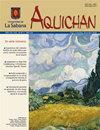针对老年手术患者的护理姑息关怀:范围界定综述
Q3 Nursing
引用次数: 0
摘要
导言:讨论高科技环境下的姑息关怀和介入实践,是在为老年人提供生与死的持续健康这一挑战中需要考虑的各个方面之一。目标:绘制并识别现有文献中有关护理行动的作品,这些行动侧重于在外科住院环境中为老年患者提供姑息护理。材料与方法:根据乔安娜-布里格斯研究所(Joanna Briggs Institute)和《系统性综述--范围界定综述的首选报告项目》(Preferred Reporting Items for Systematic Review-Scoping Review)指南,对八个数据库进行了范围界定综述。使用了以下描述符:护理;姑息治疗;老年人;手术。纳入标准如下:原始研究、系统综述、荟萃分析和临床试验。检索分三个阶段进行:数据库列表/试点测试;大范围检索/应用 "PCC "策略(人群、概念、背景);内容全文阅读。共检索到 509 篇作品,然后使用 Rayyan® 软件进行管理,从中选出 13 篇研究。该方案已在开放科学框架中注册。结果:研究对象共有 10,417 人,年龄在 60 岁至 109 岁之间。最常见的干预措施包括:用于控制症状的物理干预;文化干预,其中强调了在对康复抱有很高期望的环境中存在的困境和僵化的干预方案;以及作为姑息关怀基本工具的沟通干预。结论病情严重的老年人可以从围手术期的姑息关怀中获益。然而,有必要对护士进行疼痛管理方面的培训,增强其参与伦理决策的能力,以及加强沟通的培训。值得注意的是,由于方法上的缺陷,有关改善姑息关怀的干预措施的证据仍然有限,因此需要进行严格的评估,以衡量对患者和护理的显著效果。本文章由计算机程序翻译,如有差异,请以英文原文为准。
Nursing Palliative Care for Elderly Surgical Patients: A Scoping Review
Introduction: The discussion on palliative care in high-tech environments and interventional practice represents one of the various aspects to be considered in the challenge of providing a continuum of wellness in living and dying for the elderly. Objective: To map and identify the existing works in the literature on nursing actions that focus on palliative care for elderly patients in surgical hospitalization settings. Materials and methods: This scoping review was conducted on eight databases, following the Joanna Briggs Institute and the Preferred Reporting Items for Systematic Review-Scoping Review guidelines. The following descriptors were used: nursing care; palliative care; elderly; surgery. The inclusion criteria were the following: primary research, systematic reviews, meta-analyses, and clinical trials. The search was performed in three stages: database listing / pilot test; broad search/application of the “PCC” strategy (population, concept, context); and full reading of the content. A total of 509 productions were retrieved and then managed using the Rayyan® software, of which 13 studies were selected. The protocol was registered in the Open Science Framework. Results: The total population consisted of 10,417 people aged from 60 to 109. The most frequent interventions included the physical dimension, for symptomatic control; the cultural dimension, in which the dilemmas present in an environment with a high expectation for recovery and rigid interventionist protocols were highlighted, as well as the communication dimension, which is a basic tool of palliative care. Conclusions: Elderly people with serious conditions can benefit from palliative care in the perioperative setting. However, there is a need for training nurses in pain management, empowerment to participate in ethical decisions, and training for better communication. It should be noted that evidence on interventions to improve palliative care is still limited by methodological flaws, so rigorous evaluations are needed to measure significant results for patients and care.
求助全文
通过发布文献求助,成功后即可免费获取论文全文。
去求助
来源期刊

Aquichan
NURSING-
CiteScore
1.10
自引率
0.00%
发文量
32
审稿时长
>12 weeks
期刊介绍:
Aquichan, a journal of medical and health sciences from the field of health sciences and, more specifically, nursing, publishes articles resulting from investigations from a point of view of epistemology, evidence-based practice, chronic care, promotion and prevention. The articles are for the academic and scientific community, both in Colombia and abroad.
The journal accepts original, previously unpublished papers in Spanish, English, and Portuguese, which are the product of a research or a review and which are not being evaluated by other scientific journals, either in print or electronic form.
 求助内容:
求助内容: 应助结果提醒方式:
应助结果提醒方式:


